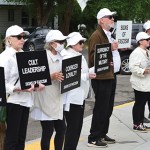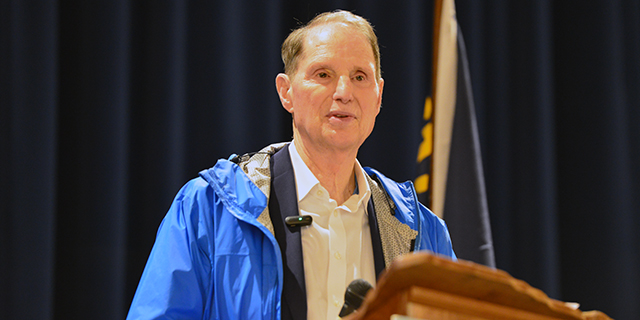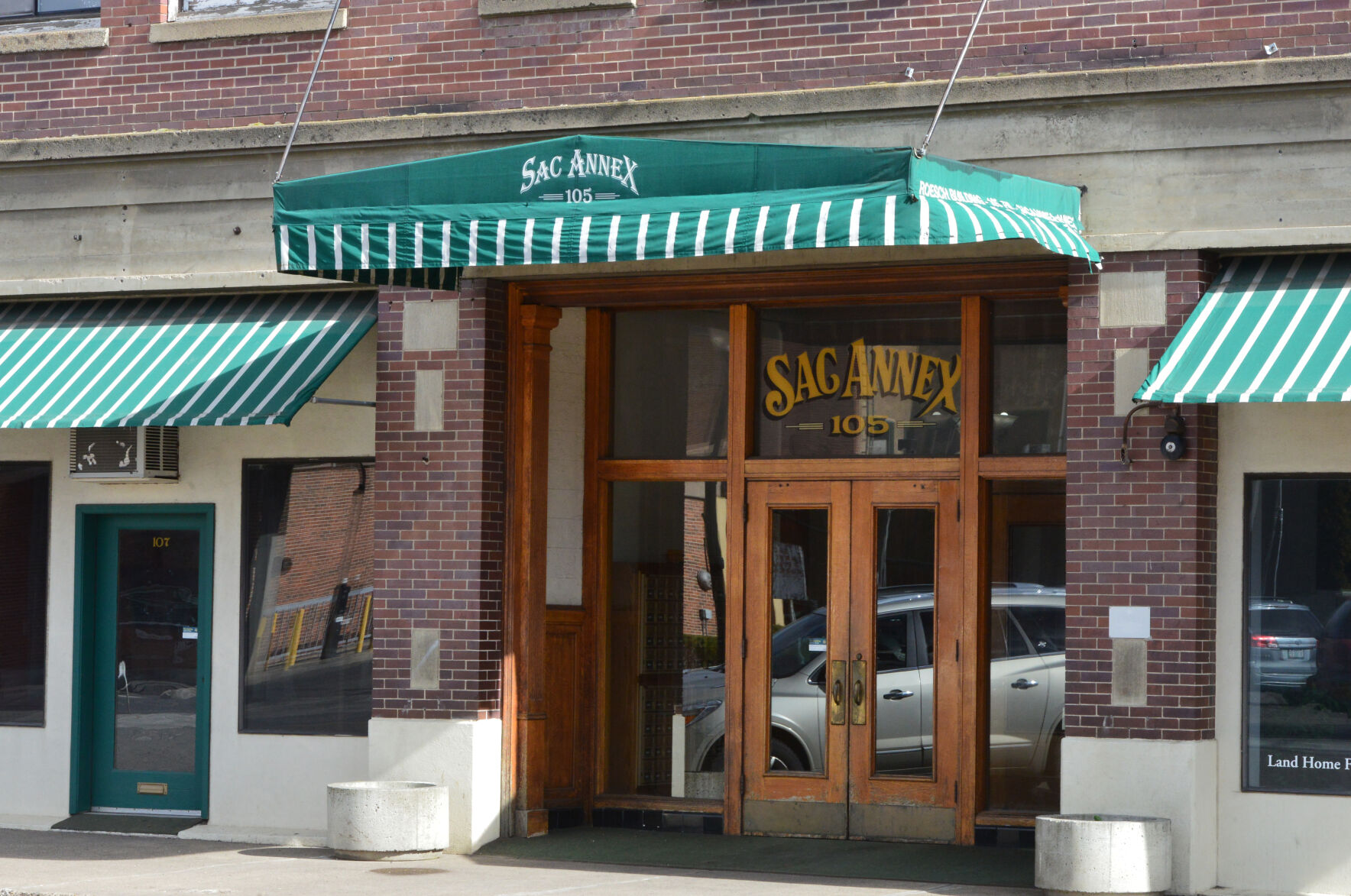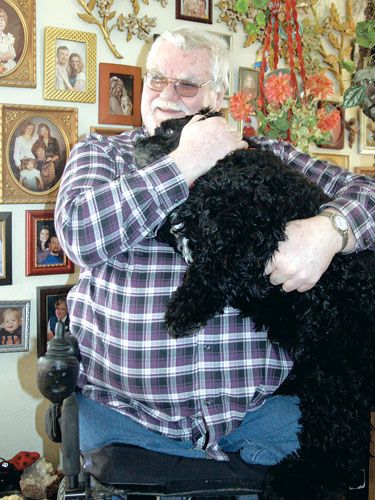U.S. Sen. Ron Wyden jabs at Trump budget bill during La Grande town hall
Published 6:31 am Saturday, June 21, 2025


LA GRANDE — U.S. Sen. Ron Wyden at his town hall Friday, June 20, in La Grande summed up his position on the tate of affairs in the county in four words.
“No kings,” he said. “No violence.”
He opened the event La Grande High School, though, acknowledging this has been a difficult week for many in Union County, especially those affected by the death of Union County Sheriff’s deputy Dan Johnson, whose funeral service was the day prior.
“We want to convey our condolences and our sadness to the family,” he said.
The senator then lightened the tone — joking he would begin with 30 minutes of opening remarks. Wyden went on to explain these town halls were a chance for the people of Oregon to share what is important to them.
“There are no subjects off limits,” Wyden said. “This is a time to educate me on what’s important to you.”
“Big bad bill”
He then took questions from the audience — fielding topics from taxes and fascism to health care and education. Many of the questions — at the core — were about President Donald Trump’s budget reconciliation bill — the One Big Beautiful Bill Act.
“They are so aware that their bill — I call it big bad bill, they call it their beautiful bill — is so indefensible they won’t even have a markup,” Wyden said. “In other words, they won’t go and show up in public and have the guts to defend it.”
One attendee explained she has insurance through the Affordable Care Act, but the tax credits are set to expire at the end of this year.
Wyden said he was a strong supporter of the tax credits. He said getting rid of them would be a “horrible mistake” that would affect millions of Americans’ health coverage.
The senator tied it back to the issue of possible cuts to Medicare and Medicaid, which he said would set back the clock on health care in the United States.
“I’ve had a chance to represent Oregon in public life for a number of years now,” Wyden said. “I consider this the most important battle I’ve ever been a part of — and we’re going to stay at it until we win.”
Cuts to education
George Mendoza, La Grande School District superintendent ,and Tim Seydel, vice president for university advancement at Eastern Oregon University, asked questions regarding proposed reductions in federal funding for education.
Seydel’s question focused on support for students attending higher education and Pell Grants ,while Mendoza inquired about funding cuts and reductions to programs for K-12 schools.
“This is a choice about priorities. Do we want to give tax breaks to billionaires and cut off kids from educational opportunity? I think that is a really unwise judgement, but that’s what’s really going on here,” Wyden said.
The senator said he supports Pell Grants and educational opportunities that give Americans the chance to get ahead.
Hamstringing the courts
Other residents asked about specific parts of the reconciliation bill they found worrisome — the proposal to not allow federal court to enforce a contempt citation and the potential sale of public land parcels.
Wyden is opposed to both parts of the bill. When it comes to the contempt citation issue, Wyden said this gives the president more power and takes power away from the people.
“I’m strongly opposed to it, and I’m part of an effort in Congress to knock it out. It’s a really bad idea,” Wyden said.
He explained because this is a reconciliation bill it is subject to the Byrd Rules, which means the package can only deal with matters involving spending, not policy. Wyden said he’s planning to speak to his colleagues and attempt to remove this as a violation of those rules.
Selling public lands
Wyden sees the push for the sale of public lands as a “political farce.” He pointed out it is primarily in Western states but Montana managed to get an exception.
“I think that selling off our public lands is a colossally bad idea, No. 1.” Wyden said. “No. 2, it’s completely contrary to Oregon values.”
He said he would do everything in his power to block it.
Throughout the town hall Wyden urged people to mobilize. He suggested attendees reach out to friends and family, particularly those in other states, to recommend they reach out to their representatives.
“Political change rarely starts in Washington, D.C., and tickles down,” Wyden said. “It’s almost always grassroots up.”







